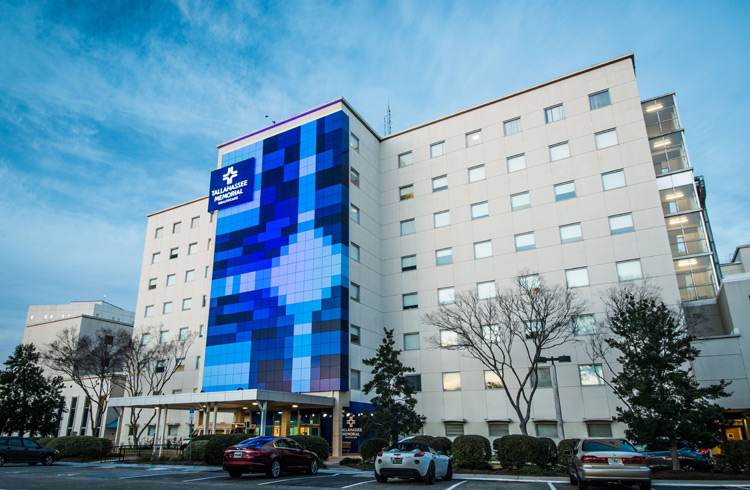When is Hernia Repair Surgery Needed?
August 26, 2025
If you’ve ever had a hernia, it may seem like a harmless bulge in your abdomen or groin. However, if left untreated, a hernia can get larger as time passes and cause pain and further medical conditions. In this blog, we’ll discuss hernia symptoms, types of hernias, and the best hernia surgery options for Tallahassee and the surrounding areas.
What is a hernia?
A hernia appears when abdominal tissue or intestines form a sac that pokes through muscle and appear as a bulge in the skin. While this displacement may sound shocking, people with hernias can expect a full recovery if treated with medical care. This can occur in the chest, groin and stomach area.
If you think you have a hernia, you should seek medical care to diagnose and treat the hernia early on before symptoms worsen.
Who is at risk for hernias?
Both men and women can get a hernia at any age, but they are more likely to happen as you get older due to weakening abdominal muscles. Individuals with obesity, smokers and those who do not adhere to proper weightlifting techniques may be more prone to having a hernia. You can even get a hernia from coughing too hard!
Types of Hernias
Groin and Chest Hernias
While hernias normally involve abdominal tissue or intestines, many people experience them elsewhere in the body, such as the groin and chest.
1. Inguinal hernias
Inguinal hernias are the most common type of hernia, appearing as a bulge of abdominal tissue in the groin. The size of this can vary, with some hernias being multiple inches in length. Men are more likely to experience this type of hernia.
2. Femoral hernias
More common among women, femoral hernias happen when abdominal tissues or organs push through the upper thigh, near the groin.
Symptoms for inguinal and femoral hernias are similar. The first signs of groin hernias are pain, tingling or numbness in the groin, thigh or abdomen. More severe symptoms include nausea and vomiting, which require immediate medical attention.
3. Hiatal hernias
These occur when part of the stomach bulges through the diaphragm, pushing a hernia into an opening in the chest. This usually occurs in infants and among people over 50 as tissue weakens. Smokers and those with obesity are at higher risk for developing this type of hernia.
Hiatal hernias can cause gastroesophageal reflux disease (GERD), commonly known as acid reflux. While most hiatal hernias do not cause discomfort by themselves, symptoms arise due to stomach acid, air or bile flowing upward. These symptoms include:
- Chest pain
- Heartburn that worsens when bending over or lying down
- Difficulty swallowing
One study showed that 95% of individuals with GERD have a hiatal hernia. If you experience GERD without relief after medication and lifestyle changes, talk with your doctor about imaging to see if you have a hiatal hernia.
Abdominal Hernias
Hernias in the stomach occur in weak spots in the abdominal wall, a layer called the fascia. The two most common types of abdominal hernias are umbilical and ventral hernias.
1. Umbilical hernias
This type of abdominal hernia is more common and is distinguished by a swelling around the belly button. These are most common amongst infants, as it occurs when the opening in the abdomen does not close properly once the umbilical cord is cut at birth.
Most umbilical hernias in babies usually heal on their own. If the hernia does not heal by the time a child is three or four years old, or if the hernia becomes strangulated, surgery may be needed.
Hernia strangulation occurs when intestine or tissue bulges out of a hernia and becomes trapped. This cuts off blood supply to the tissue. A telltale sign of strangulation is when the skin around a hernia changes color.
2. Ventral hernia
A ventral hernia can occur anywhere in the abdomen. Since hernias occur at weak points in the abdomen, old scars or surgical incisions can lead to this type of hernia.
What causes a hernia?
While causes and symptoms are not exact, most people experience hernias when a person’s abdomen is being overexerted.
This can happen when a person lifts something too heavy, does not use the proper weightlifting techniques, coughs or sneezes intensely, or strains during bowel movements.
Additional causes include:
- Cystic fibrosis
- Fluid in the abdomen
- Poor nutrition
- Smoking
- Previous abdominal surgery
When do hernias become severe?
Hernias can start out painless or with minimal discomfort. However, if ignored, a hernia can grow larger and may become strangulated. This happens when the small intestine inside the sac gets stuck and loses blood supply.
Signs this has happened include:
- Pain in the affected area
- Swelling
- Vomiting and nausea
- Inability to pass gas or have bowel movements
In this circumstance, surgery is needed right away and is considered a medical emergency. If this happens to you, call 9-1-1 immediately or go to your nearest Emergency Room.
Your Treatment Options
If you think you have a hernia, an ultrasound or CT scan can confirm your prognosis. From there, you and your physician can evaluate the severity level of the hernia and discuss options.
Hernia repair surgery is a minimally invasive procedure that begins with a surgical incision to the affected area. Then, a surgeon will locate the hernia and separate it from the abdominal tissue layers. Once detached, the surgeon will gently push the tissue or intestines back into the abdomen.
Recovery from surgery allows most people to return to normal activity within one to two weeks.
Advanced Hernia Repair Program at TMH
Tallahassee Memorial HealthCare (TMH) has been recognized as a Center of Excellence in Hernia and Robotic Surgery by the Surgical Review Corporation (SRC), meaning our facility and staff undergo rigorous evaluations to ensure quality care and patient safety. We provide minimally invasive hernia surgery for Tallahassee and the surrounding Big Bend community.
Start Your Hernia Repair Surgery
Do you have a hernia? Complete our form to have a member of our surgery team contact you to schedule a surgical consultation.

